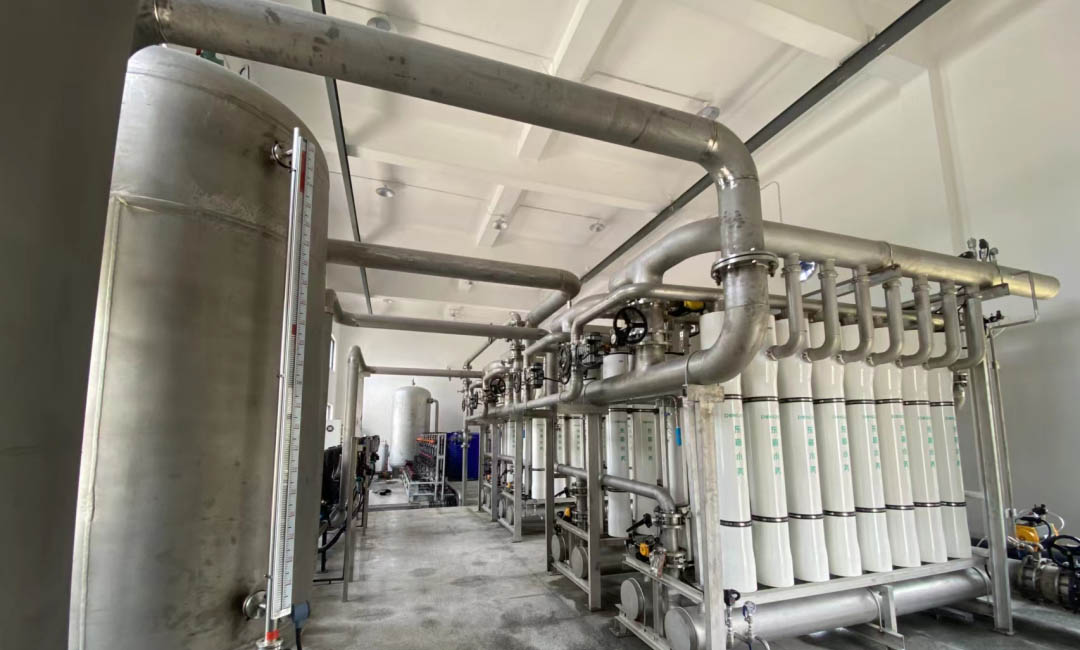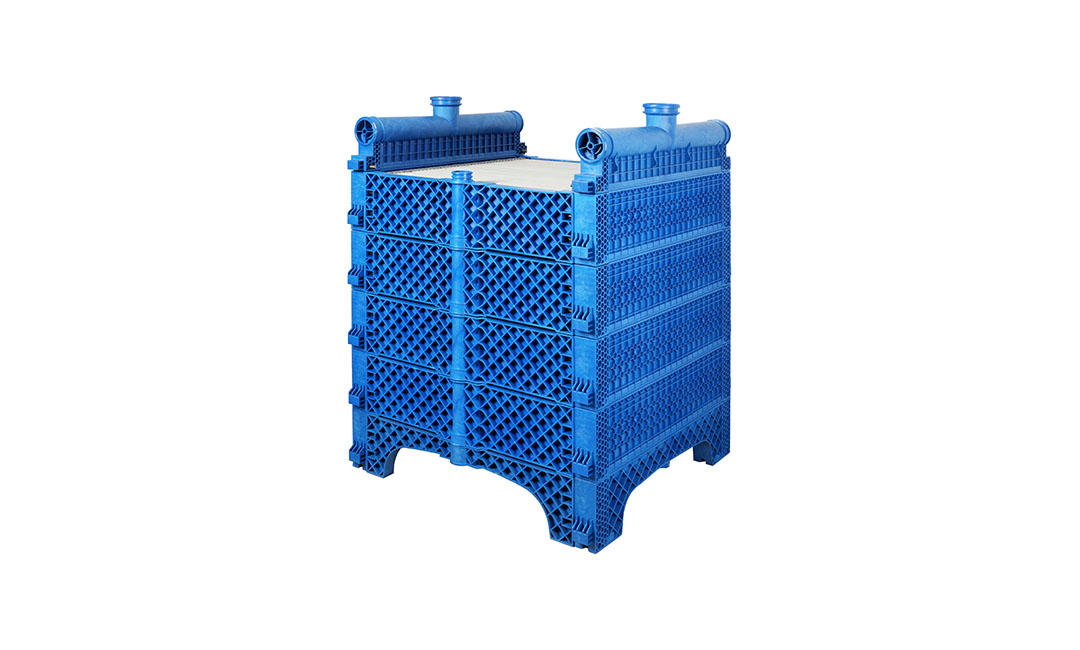Enhanced Filtration Performance of Silicon Carbide Membranes
Silicon carbide (SiC) membranes have gained significant attention in the field of water filtration due to their exceptional properties that optimize filtration efficiency. These membranes are made from a combination of silicon and carbon atoms, resulting in a material that is extremely hard, chemically inert, and resistant to high temperatures. These unique characteristics make SiC membranes ideal for a wide range of filtration applications, including wastewater treatment, desalination, and industrial processes.
One of the key advantages of SiC membranes is their high mechanical strength, which allows them to withstand harsh operating conditions without compromising their filtration performance. This durability is particularly important in industrial settings where the filtration process can be highly abrasive or corrosive. SiC membranes can effectively filter out contaminants such as suspended solids, bacteria, and viruses, ensuring that the treated water meets stringent quality standards.
In addition to their mechanical strength, SiC membranes also exhibit excellent chemical resistance, making them suitable for filtering a wide range of chemicals and solvents. This versatility allows SiC membranes to be used in diverse applications, from treating municipal wastewater to purifying process water in the pharmaceutical industry. The chemical resistance of SiC membranes also ensures that they have a long service life, reducing the need for frequent membrane replacement and maintenance.

Another key advantage of SiC membranes is their high permeability, which allows for faster filtration rates and higher water fluxes compared to traditional membrane materials. This increased permeability not only improves the overall efficiency of the filtration process but also reduces energy consumption, making SiC membranes a cost-effective solution for water treatment applications. The high permeability of SiC membranes is attributed to their unique pore structure, which consists of a network of interconnected pores that facilitate the rapid transport of water molecules while retaining contaminants.
Furthermore, SiC membranes have a high porosity, which provides a large surface area for filtration and enhances the retention of particles and impurities. This high porosity allows SiC membranes to achieve superior removal efficiencies for a wide range of contaminants, including heavy metals, organic compounds, and microorganisms. The combination of high permeability and porosity in SiC membranes results in a filtration process that is both efficient and effective in producing high-quality treated water.
In conclusion, Silicon carbide membranes offer a range of advantages that optimize filtration efficiency and performance in various water treatment applications. Their high mechanical strength, chemical resistance, permeability, and porosity make them a superior choice for industries seeking to improve the quality of their water treatment processes. By utilizing SiC membranes, companies can achieve higher filtration rates, lower energy consumption, and superior contaminant removal, ultimately leading to cost savings and environmental benefits. As the demand for clean water continues to grow, SiC membranes are poised to play a crucial role in meeting the challenges of water scarcity and pollution, making them a valuable asset in the field of water filtration.
The Role of Silicon Carbide in Reducing Fouling in Filtration Systems
Silicon carbide (SiC) has emerged as a pivotal material in the realm of filtration systems, particularly due to its remarkable properties that significantly reduce fouling. Fouling, the accumulation of unwanted materials on the membrane surface, poses a substantial challenge in various filtration applications, leading to decreased efficiency and increased operational costs. The unique characteristics of silicon carbide, including its high mechanical strength, chemical stability, and thermal resistance, make it an ideal candidate for enhancing filtration processes.
One of the primary advantages of silicon carbide membranes is their ability to maintain structural integrity under harsh conditions. This resilience allows them to withstand high pressures and temperatures, which are often encountered in industrial filtration processes. As a result, SiC membranes can operate effectively in a wide range of environments, from wastewater treatment to food and beverage processing. The durability of silicon carbide not only extends the lifespan of the membranes but also reduces the frequency of replacements, thereby lowering overall maintenance costs.
Moreover, the surface properties of silicon carbide play a crucial role in minimizing fouling. The hydrophilic nature of SiC membranes promotes better interaction with water molecules, which enhances the permeability of the membranes. This increased permeability is essential for efficient filtration, as it allows for higher flow rates while simultaneously reducing the likelihood of fouling. When compared to traditional polymeric membranes, silicon carbide membranes exhibit a lower tendency to accumulate particles and organic matter, which is a common issue in many filtration systems.
In addition to their inherent material properties, the design and fabrication of silicon carbide membranes can be optimized to further reduce fouling. Advanced manufacturing techniques enable the creation of membranes with tailored pore sizes and surface textures, which can be specifically engineered to target particular contaminants. By controlling these parameters, engineers can develop membranes that not only filter out unwanted substances more effectively but also resist the buildup of foulants. This customization is particularly beneficial in applications where specific contaminants are prevalent, allowing for a more efficient and targeted filtration process.
Furthermore, the chemical resistance of silicon carbide membranes is another significant factor in their ability to reduce fouling. Many filtration systems encounter aggressive chemicals that can degrade traditional membrane materials, leading to increased fouling and reduced performance. Silicon carbide, however, is highly resistant to a wide range of chemicals, ensuring that the membranes maintain their functionality even in challenging environments. This chemical stability not only enhances the longevity of the membranes but also contributes to consistent filtration performance over time.
The integration of silicon carbide membranes into existing filtration systems can lead to substantial improvements in efficiency. By reducing fouling, these membranes allow for longer operational periods between cleanings, which translates to lower downtime and increased productivity. Additionally, the enhanced filtration performance can result in higher quality effluent, meeting stringent regulatory standards and improving overall process outcomes.

In conclusion, the role of silicon carbide in reducing fouling in filtration systems cannot be overstated. Its unique properties, including mechanical strength, chemical resistance, and customizable design, make it an invaluable material for optimizing filtration efficiency. As industries continue to seek more effective and sustainable filtration solutions, silicon carbide membranes stand out as a promising option that addresses the challenges of fouling while enhancing overall system performance. The ongoing research and development in this field will likely yield even more innovative applications, further solidifying silicon carbide’s position as a leader in filtration technology.
Comparative Analysis of Silicon Carbide Membranes and Traditional Filtration Materials
Silicon carbide (SiC) membranes have emerged as a revolutionary technology in the field of filtration, particularly when compared to traditional filtration materials. The unique properties of silicon carbide, including its exceptional mechanical strength, chemical resistance, and thermal stability, position it as a superior alternative for various filtration applications. Traditional filtration materials, such as polymeric membranes and ceramic membranes, have long been utilized in industries ranging from water treatment to pharmaceuticals. However, these materials often face limitations in terms of durability, fouling resistance, and operational efficiency.
One of the most significant advantages of silicon carbide membranes is their high permeability, which allows for greater flow rates while maintaining effective separation of particles. This characteristic is particularly beneficial in applications where high throughput is essential. In contrast, traditional membranes often exhibit lower permeability, leading to increased energy consumption and operational costs. The ability of SiC membranes to facilitate higher flow rates without compromising filtration quality makes them an attractive option for industries seeking to optimize their processes.
Moreover, the chemical resistance of silicon carbide membranes is noteworthy. They can withstand harsh chemical environments, making them suitable for applications involving aggressive solvents or corrosive substances. Traditional filtration materials, particularly polymeric membranes, may degrade or lose their structural integrity when exposed to such conditions. This durability not only extends the lifespan of SiC membranes but also reduces the frequency of replacements, resulting in lower long-term operational costs.
Fouling is a common challenge faced by traditional filtration systems, where particles accumulate on the membrane surface, leading to reduced efficiency and increased maintenance requirements. Silicon carbide membranes exhibit superior fouling resistance due to their unique surface properties and pore structure. The hydrophilic nature of SiC membranes helps to minimize the adhesion of foulants, allowing for easier cleaning and maintenance. This characteristic is particularly advantageous in applications such as wastewater treatment, where the presence of organic and inorganic contaminants can significantly impact filtration performance.
In addition to their physical and chemical properties, silicon carbide membranes also offer enhanced thermal stability. This feature allows them to operate effectively in high-temperature environments, which is often a requirement in industrial processes. Traditional membranes may not withstand such conditions, leading to potential failures and operational disruptions. The ability of SiC membranes to maintain their integrity and performance under extreme temperatures further underscores their superiority in various applications.
Furthermore, the scalability of silicon carbide membrane technology is a critical factor in its comparative analysis with traditional materials. SiC membranes can be manufactured in various configurations and sizes, making them adaptable to different filtration systems and processes. This versatility allows industries to implement SiC membranes without significant modifications to existing infrastructure, facilitating a smoother transition from traditional materials.
In conclusion, the comparative analysis of silicon carbide membranes and traditional filtration materials reveals several key advantages that SiC membranes offer. Their high permeability, exceptional chemical resistance, superior fouling resistance, enhanced thermal stability, and scalability position them as a leading choice for optimizing filtration efficiency across various industries. As the demand for more efficient and durable filtration solutions continues to grow, silicon carbide membranes are poised to play a pivotal role in advancing filtration technology, ultimately contributing to improved operational performance and sustainability in numerous applications.

